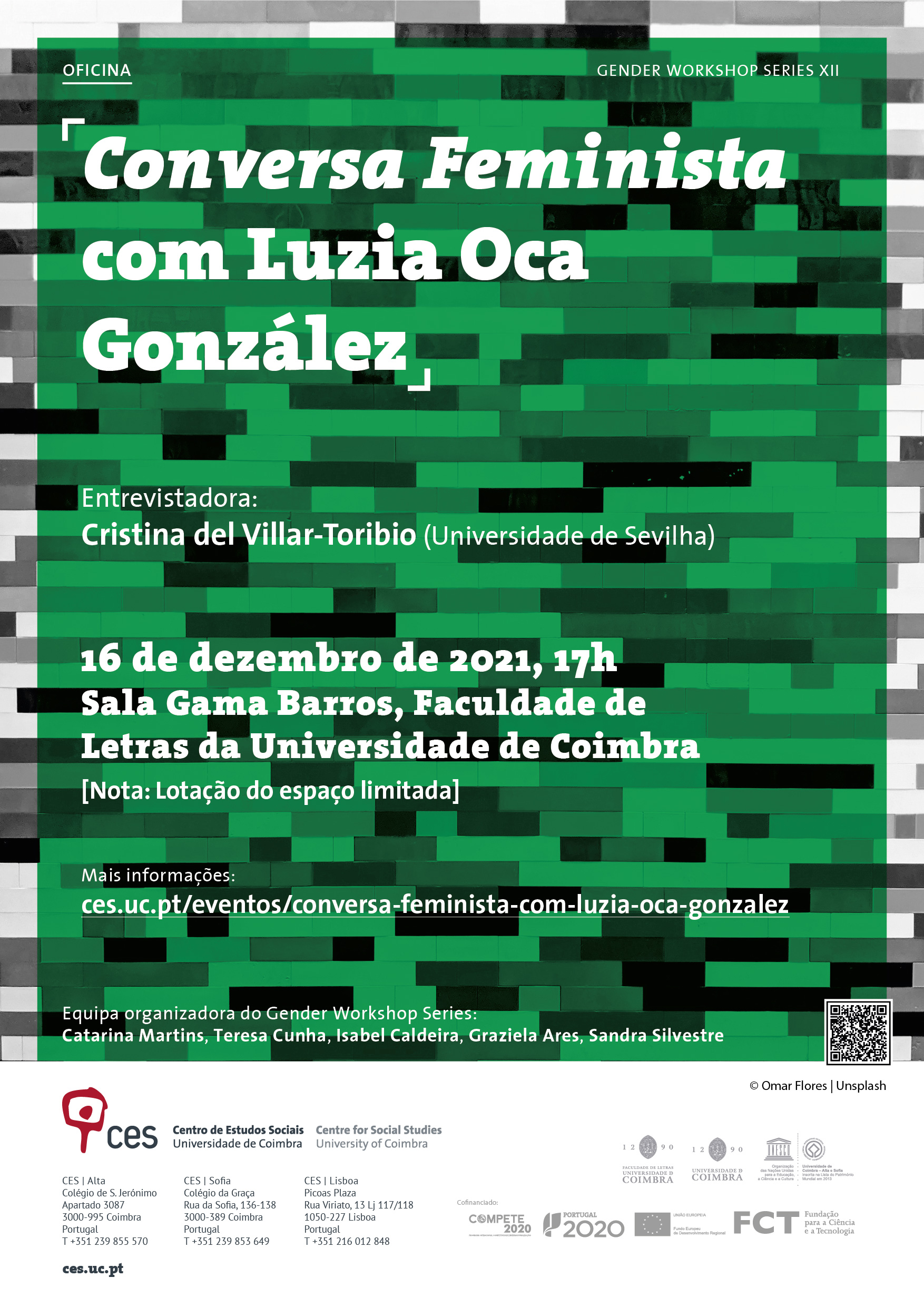Workshop| Gender Workshop Series XII
Feminist Talks with Luzia Oca González
December 16, 2021, 17h00
Gama Barros Room, Faculty of Arts and Humanities, University of Coimbra
About
Interviewer: Cristina del Villar-Toribio (Seville University)
About
Under the motto "Feminist Talks", the XII edition of the Gender Workshop Series proposes a series of talks with people from different areas of intervention and work in the field of gender equality and women's dignity and well being in Portugal and Galicia. In this session, we will talk with Luzia Oca González, based on her work.
Bio notes
Luzia Oca González holds a PhD in Social Anthropology at the University of Santiago de Compostela (2013). She is assistant professor at the University of Trás-os-Montes e Alto Douro, where she works since 2004, conducting research at the Centre for Transdisciplinary Studies for Development - CETRAD. Author of several research works and publications on the Cape-Verdean community in Galicia, with whom she has several integration projects in Burela. Vicente Risco Award for Social Sciences 2014, with the work “Caboverdianas en Burela: migración, relacións de xénero e intervención social (1978/2008)” [Cape-verdeans in Burela: migration, gender relations and social intervention (1978/2008)]. Holds a close relationship with Cape Verde, where she has participated in initiatives with women and several research projects. Works on gender-related issues, feminisms and participatory methodologies of social intervention. She currently presides the Galician Anthropology Association –AGANTRO.
Cristina del Villar-Toribio is a PhD student at the University of Seville. She has a degree in Psychology and a Masters in Health, Welfare and Migration. Currently, she's working in the field of care practices for African migrant women living in Spain. Her research interests are postcolonial feminism, gender studies, caregiving, migration, cultural psychology and qualitative methodologies. She received a grant from the Universia Foundation. She has collaborated with different local NGOs dedicated to migration and refugee issues and is part of the Re-thinking Africa network, a network of academics and activists for African issues.
[Note: Capacity limited to 21 participants]


